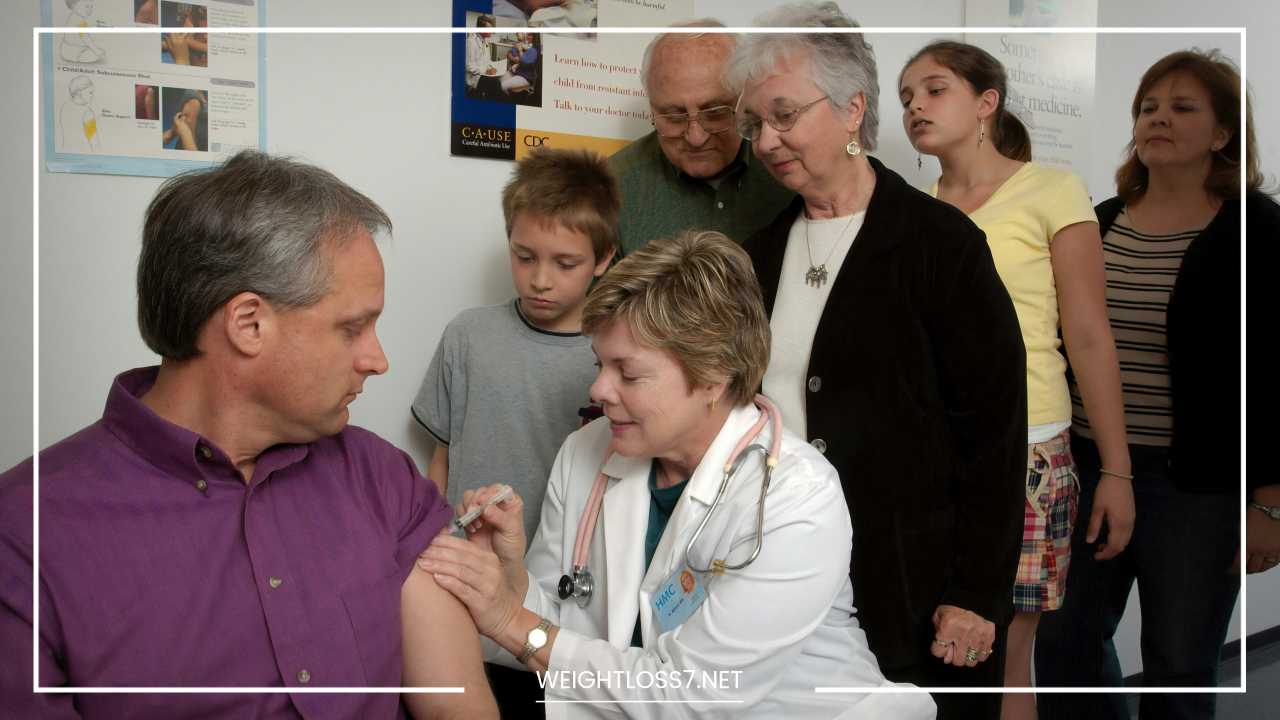Five Great Global Health Programs in Europe

Health Programs
Five Great Global Health Programs in Europe: Making a Difference on a Global Scale
Europe has long been a pioneer in healthcare innovation and accessibility. This commitment extends far beyond its own borders, with numerous organizations tackling global health challenges head-on.
These programs address a wide range of issues, from infectious diseases to maternal health, making a significant impact on people’s lives worldwide.
In this comprehensive blog post, we’ll delve into five of the most impactful global health programs in Europe. We’ll explore their areas of focus, their unique approaches, and the ways they’re changing the world for the better.
1. The Joint United Nations Programme on HIV/AIDS (UNAIDS) Headquarters
Headquartered in Geneva, Switzerland, UNAIDS stands out as a truly remarkable program. It’s a unique collaboration that brings together ten UN agencies under one roof to fight the global HIV/AIDS epidemic. This coordinated approach allows for a comprehensive strategy encompassing prevention, treatment, care, and support.
UNAIDS plays a vital role in:
- Setting Global Targets and Strategies: They provide invaluable guidance and direction to countries around the world on tackling HIV/AIDS. Their expertise informs national strategies and ensures a unified global approach to defeating the epidemic.
- Advocacy for Increased Funding: UNAIDS is a champion for mobilizing resources. They work tirelessly to secure funding from governments, donors, and the private sector. These resources are crucial for supporting global HIV/AIDS efforts and ensuring program sustainability.
- Data Collection and Analysis: UNAIDS provides vital information on the scope and impact of the epidemic. They collect and analyze data on infection rates, access to treatment, and mortality. This data informs program development, resource allocation, and helps track progress towards global targets.
- Supporting National Programs: UNAIDS doesn’t operate in a vacuum. They work closely with governments and national health authorities to develop and implement effective HIV/AIDS interventions tailored to each country’s specific needs and context. This collaborative approach empowers local ownership and ensures programs are culturally appropriate.
Impact: Since its inception in 1996, UNAIDS has been a driving force in the significant decline of new HIV infections and AIDS-related deaths globally. Their tireless efforts have yielded impressive results. New HIV infections have fallen by over 50% since the peak in the late 1990s, and AIDS-related deaths have declined dramatically.
UNAIDS’ advocacy has also led to a substantial increase in access to antiretroviral therapy (ART). This life-saving medication allows people living with HIV to control the virus and live longer, healthier lives.
However, the fight against HIV/AIDS is far from over. Disparities in access to treatment and prevention services remain, particularly in low- and middle-income countries.
UNAIDS continues to play a critical role in addressing these disparities, advocating for increased resources and promoting innovative approaches to reach the most vulnerable populations.
2. Médecins Sans Frontières (MSF) – Doctors Without Borders
MSF, also known as Doctors Without Borders, is an independent medical humanitarian organization founded in France in 1971. Driven by a commitment to medical neutrality and impartiality, MSF operates in over 70 countries worldwide.
They provide medical care to people caught in humanitarian crises, conflicts, and natural disasters, regardless of race, religion, or political affiliation.
MSF’s core activities encompass a wide range of essential medical services:
- Emergency Medical Care: They deliver life-saving care in some of the world’s most challenging environments. This includes surgery, vaccinations, treatment for infectious diseases, and mental health support. MSF establishes field hospitals and mobile clinics to reach people in desperate need, often in war zones or areas ravaged by natural disasters.
- Mother and Child Health: MSF focuses on ensuring access to prenatal care, safe delivery, and essential newborn care in resource-limited settings. They work to reduce maternal and child mortality rates by providing skilled birth attendants, training healthcare workers, and raising awareness about safe pregnancy practices.
- Treatment for Neglected Diseases: MSF tackles neglected tropical diseases (NTDs) like sleeping sickness, Chagas disease, and Buruli ulcer. These diseases often affect the poorest and most vulnerable populations, receiving little research and development funding. MSF works to diagnose, treat, and prevent NTDs, advocating for increased resources and research to combat these neglected illnesses.
Impact: The impact of MSF’s work is undeniable. They have delivered vital medical care to millions of people worldwide, saving countless lives and alleviating suffering in some of the world’s most desperate situations.
MSF’s commitment to medical neutrality and impartiality allows them to operate in conflict zones where access to healthcare is often severely restricted.
Beyond treatment, MSF plays a crucial role in speaking out against human rights abuses that affect health.
They advocate for improved living conditions in refugee camps, denounce violence against healthcare workers, and raise awareness about the devastating health consequences of war and conflict. MSF’s willingness to speak truth to power ensures that the plight of vulnerable populations doesn’t go unheard.
Challenges and the Road Ahead: Operating in conflict zones and unstable environments presents significant challenges for MSF. They face issues of security, access, and limited resources.
Despite these challenges, MSF remains committed to its core principles and continues to deliver life-saving medical care to those who need it most.
Looking ahead, MSF will need to adapt to an evolving global landscape, including the rise of antimicrobial resistance, climate change-related health threats, and ongoing humanitarian crises.
3. The World Health Organization (WHO) Regional Office for Europe
Located in Copenhagen, Denmark, the WHO Regional Office for Europe is one of six regional offices of the World Health Organization.
Its primary focus is on improving health and well-being in the 53 member states of the European Region. The WHO Europe plays a critical role in shaping health policy and promoting best practices across the continent.
Key Areas of Work:
- Communicable Diseases: The WHO Europe works tirelessly to prevent and control the spread of infectious diseases. They track outbreaks, develop surveillance systems, and coordinate responses to public health threats. Recent examples include their work on COVID-19, measles, and tuberculosis.
- Non-communicable Diseases (NCDs): NCDs such as heart disease, cancer, and diabetes pose a significant burden on health systems across the European Region. The WHO Europe addresses this challenge by promoting healthy lifestyles, advocating for preventative measures, and supporting the development of effective treatment programs.
- Health Systems Strengthening: The WHO Europe recognizes the importance of strong health systems in ensuring equitable access to quality healthcare. They provide technical assistance to countries in strengthening their health systems, focusing on areas like workforce development, financing, and service delivery.
- Environmental Health: The WHO Europe recognizes the link between the environment and human health. They address the impact of environmental factors on health, such as air pollution, climate change, and water quality.
Impact: The WHO Europe has had a profound impact on public health in the European Region. They have played a crucial role in reducing the burden of infectious diseases, promoting healthier lifestyles, and strengthening health systems.
Their work on environmental health ensures that the connection between a healthy environment and healthy people is not neglected.
Challenges and Future Directions: The WHO Europe faces several challenges in the future. These include the rise of antimicrobial resistance, the need for further progress on NCDs, and the ongoing threat of emerging infectious diseases.
Additionally, addressing the social determinants of health, such as poverty and inequality, will be crucial for achieving health equity across the European Region. The WHO Europe is well-positioned to continue its leadership role in confronting these challenges and promoting health for all.
4. The European Commission’s Directorate-General for Health and Food Safety (DG SANTE)
DG SANTE is a department of the European Commission responsible for developing and implementing EU policies on health and food safety.
Their work focuses on ensuring a high level of public health protection across the European Union. DG SANTE plays a vital role in safeguarding the health of European citizens through a range of initiatives.
Key Areas of Focus:
- Public Health Preparedness and Response: DG SANTE works to prepare for and respond to public health threats, including pandemics, outbreaks of infectious diseases, and biological and chemical threats. They coordinate efforts across EU member states, facilitate information sharing, and support the development of rapid response mechanisms.
- Food Safety: Foodborne illnesses pose a significant public health risk. DG SANTE sets and enforces food safety standards throughout the food chain, from farm to fork. They work to prevent food contamination, ensure traceability, and promote best practices in food production and processing.
- Medicines and Medical Devices: DG SANTE regulates the authorization and marketing of medicines and medical devices to ensure their safety, quality, and efficacy. This includes rigorous scientific evaluation and ongoing monitoring of products once they are on the market.
- Health Promotion and Disease Prevention: DG SANTE works to promote healthy lifestyles and prevent chronic diseases. This includes promoting physical activity, healthy eating habits, and mental well-being. They also support initiatives to reduce tobacco use and alcohol consumption.
Impact: DG SANTE’s work has significantly improved public health protection across the European Union. Their efforts on food safety have minimized the risk of foodborne illnesses, while their regulations on medicines and medical devices ensure that European citizens have access to safe and effective treatments.
Additionally, their focus on health promotion and disease prevention has fostered healthier lifestyles and reduced the burden of chronic diseases on EU healthcare systems.
Challenges and Looking Ahead: DG SANTE faces several challenges in the coming years. The emergence of new and resistant pathogens requires continuous adaptation of public health preparedness and response strategies.
Ensuring the sustainability of food production systems in the face of climate change and population growth is another critical challenge. Furthermore, addressing the growing demand for mental health services and promoting mental well-being will be crucial in the future.
DG SANTE is well-positioned to address these challenges through its ongoing commitment to evidence-based policymaking, collaboration with member states, and engagement with stakeholders across the public and private sectors.
5. The European Centre for Disease Prevention and Control (ECDC)
Established in 2005 and based in Stockholm, Sweden, the ECDC plays a critical role in safeguarding public health across Europe. They function as the European Union’s primary agency for surveillance and early warning of infectious diseases.
Core Activities:
- Surveillance and Outbreak Detection: The ECDC collects and analyzes data on infectious diseases from EU member states. This data allows them to monitor disease trends, identify outbreaks early on, and assess potential public health risks.
- Epidemiological Investigations: The ECDC investigates outbreaks of infectious diseases to understand how they are spreading and identify the source of infection. This information is crucial for implementing effective control measures.
- Scientific Advice and Risk Assessments: The ECDC provides scientific advice and risk assessments to EU member states and the European Commission on a range of public health issues. They offer expertise on disease control, prevention strategies, and preparedness measures.
- Strengthening Public Health Capacities: The ECDC works to strengthen public health capacities in EU member states. This includes training healthcare workers, developing guidelines and protocols for disease control, and supporting the development of national surveillance systems.
Impact: The ECDC has played a critical role in protecting public health in Europe. Their early warning systems have helped to identify and respond to outbreaks of infectious diseases, such as COVID-19, measles, and Ebola.
The ECDC’s scientific advice has informed national and EU-level public health policies, contributing to a more coordinated and effective response to public health threats.
Challenges and the Future: The ECDC faces several challenges in the future. Emerging infectious diseases, antimicrobial resistance, and the increasing interconnectedness of the world all pose new threats.
The ECDC will need to continue to adapt its surveillance systems and strengthen collaboration with national and international partners to effectively address these challenges.
Additionally, promoting public health communication and building trust in public health institutions will be crucial for managing future outbreaks and ensuring public adherence to control measures.
Final Word
These five European global health programs are just a few examples of the many organizations working tirelessly to improve health outcomes around the world. Their dedication to research, prevention, treatment, and advocacy is making a significant difference in the lives of millions of people.
From fighting HIV/AIDS to ensuring food safety, these programs demonstrate the power of international collaboration and innovation in tackling global health challenges.
As the world faces new and complex health threats, the work of these organizations will be more important than ever. By continuing to invest in global health programs and fostering international cooperation, we can build a healthier future for all.

















